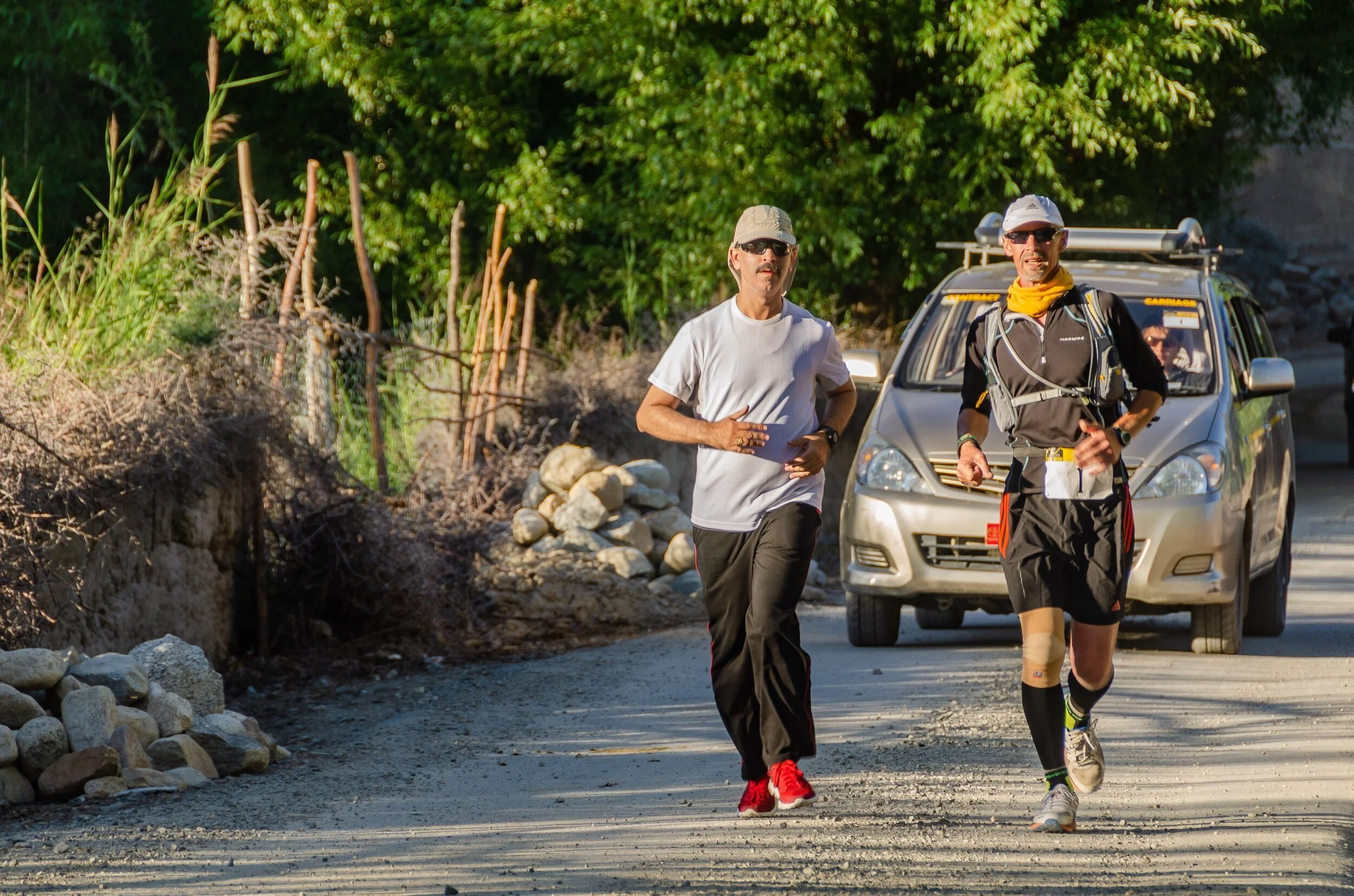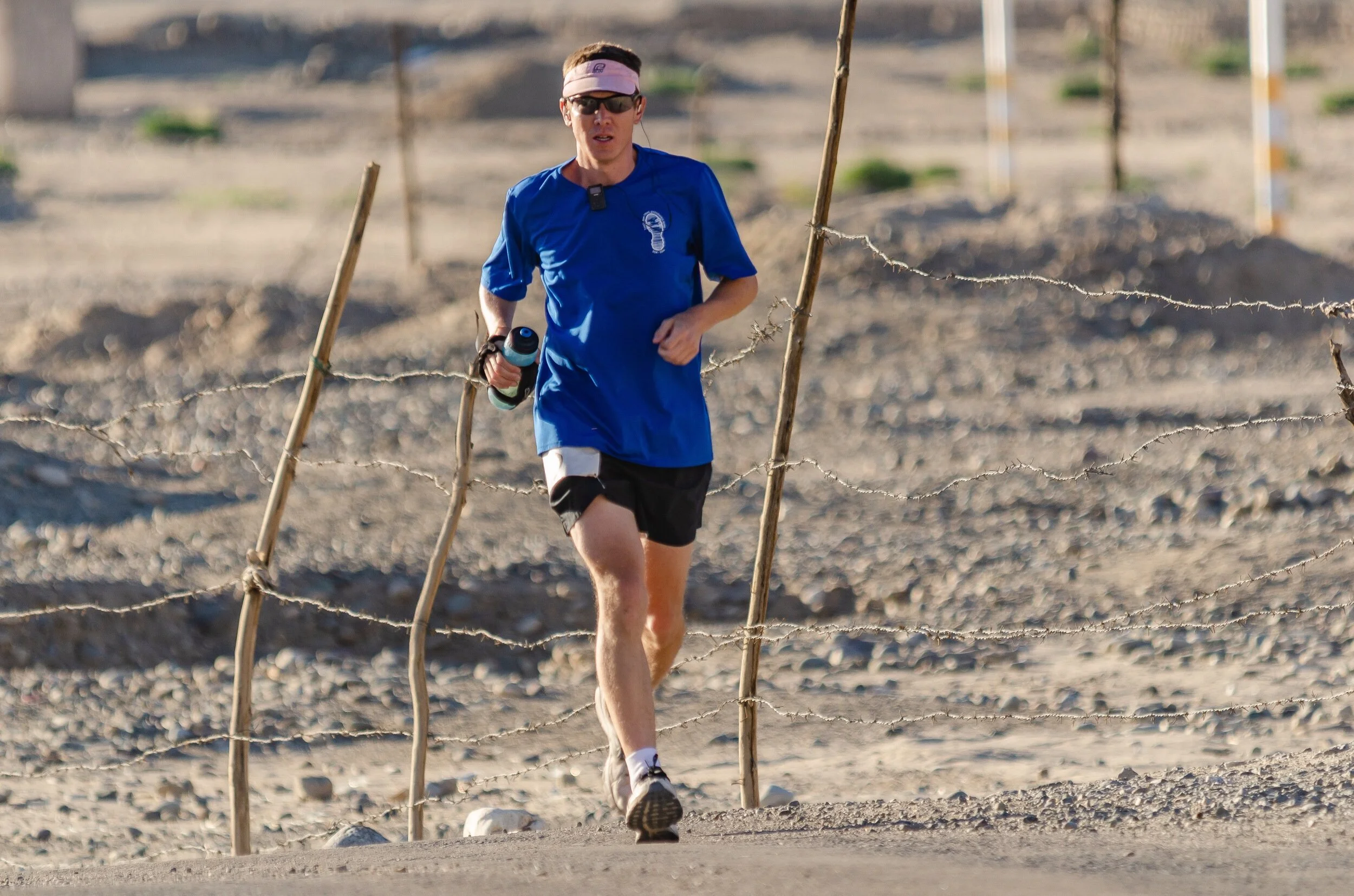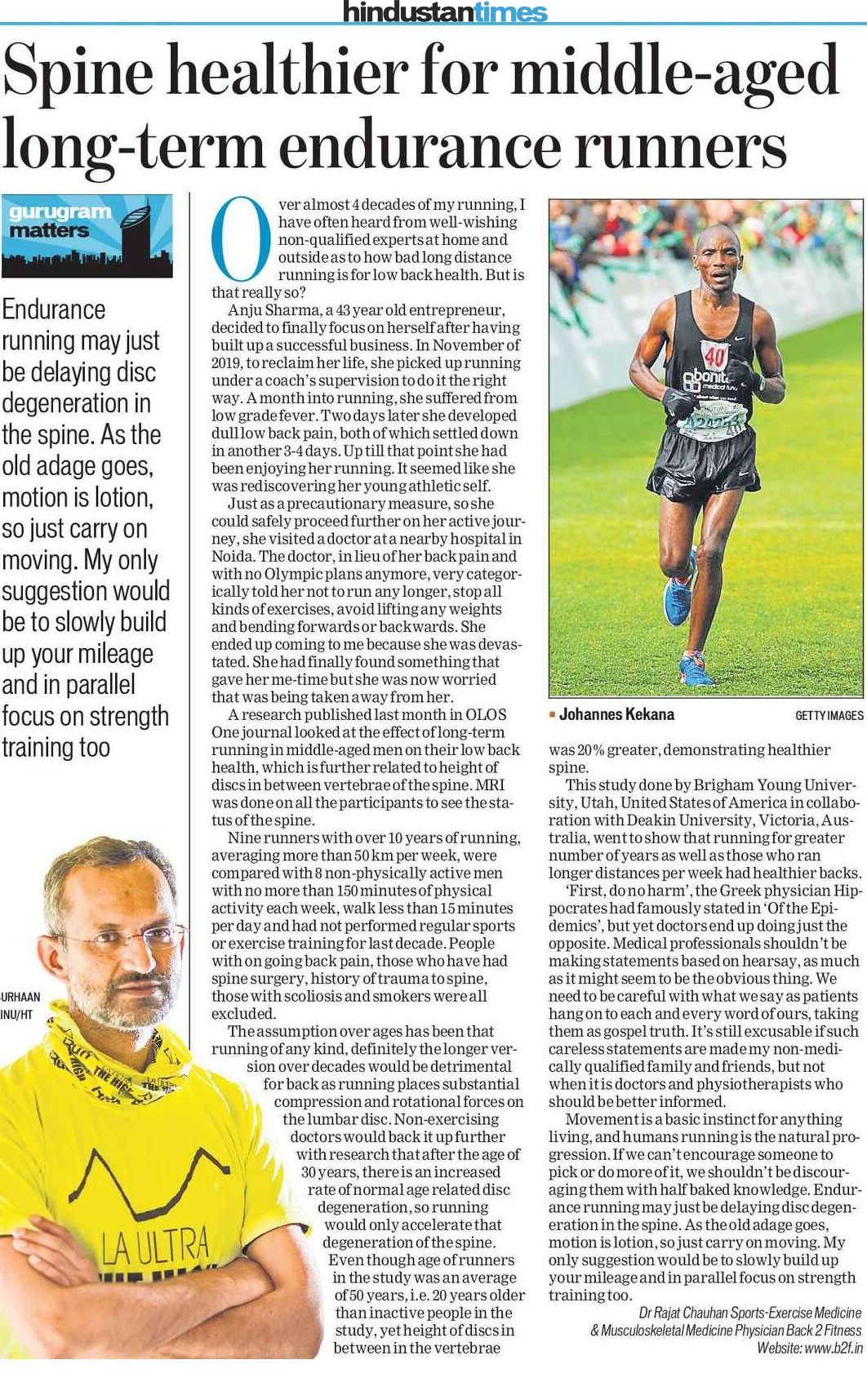Spine healthier for middle-aged long-term endurance runners
Zbigniew & Dariusz (Poland) during 2013 (4th) edition of La Ultra - The High on top of Wari-La while running 222 kms.
Week 86: Spine healthier for middle-aged long-term endurance runners
Unedited unabridged version of my column Run&Bee in Hindustan Times on 10th March 2020 (Holi Day)
Over almost 4 decades of my running, I have often heard from well-wishing non-qualified experts at home and outside as to how bad long distance running is for for low back health. But is that really so?
Anju Sharma, a 43 year old entrepreneur, decided to finally focus on herself after having built up a successful business. In November of 2019, to reclaim her life, she picked up running under a coach’s supervision to do it the right way. A month into running, she suffered from low grade fever. Two days later she developed dull low back pain, both of which settled down in another 3-4 days. Up till that point she had been enjoying her running. It seemed like she was rediscovering her young athletic self.
Ole Albertsen, a 222 km participant during 2013 edition of La Ultra - The High, along with Sunil Gwalani, his crew member.
Just as a precautionary measure, so she could safely proceed further on her active journey, she visited a doctor at a nearby hospital in Noida. The doctor, in lieu of her back pain and with no Olympic plans anymore, very categorically told her not to run any longer, stop all kinds of exercises, avoid lifting any weights and bending forwards or backwards. She ended up coming to me because she was devastated. She had finally found something that gave her me-time but she was now worried that was being taken away from her.
A research published last month in OLOS One journal looked at the effect of long-term running in middle-aged men on their low back health, which is further related to height of discs in between vertebrae of the spine. MRI was done on all the participants to see the status of the spine. 9 runners with over 10 years of running, averaging more than 50 kms per week, were compared with 8 non-physically active men with no more than 150 minutes of physical activity each week, walk less than 15 minutes per day and had not performed regular sports or exercise training for last decade. People with on going back pain, those who have had spine surgery, history of trauma to spine, those with scoliosis and smokers were all excluded.
Photo by Jesper Aggergaard on Unsplash
The assumption over ages has been that running of any kinds, definitely the longer version over decades would be detrimental for back as running places substantial compression and rotational forces on the lumbar disc. Non-exercising doctors would back it up further with research that after the age of 30 years, there is an increased rate of normal age related disc degeneration, so running would only accelerate that degeneration of the spine. Even though age of runners in the study was an average of 50 years, i.e. 20 years older than inactive people in the study, yet height of discs in between in the vertebrae was 20% greater, demonstrating healthier spine.
This study done by Brigham Young University, Utah, United States of America in collaboration with Deakin University, Victoria, Australia, went to show that running for greater number of years as well as those who ran longer distances per week had healthier backs.
‘First, do no harm’, the Greek physician Hippocrates had famously stated in ‘Of the Epidemics’, but yet doctors end up doing just the opposite. Medical professionals shouldn’t be making statements based on hearsay, as much as it might seem to be the obvious thing. We need to be careful with what we say as patients hang on to each and every word of ours, taking them as gospel truth. It’s still excusable if such careless statements are made by non-medically qualified family and friends, but not when it is doctors and physiotherapists who should be better informed.
Alex Kaine, again during the 2013 edition running 222 kms.
Movement is a basic instinct for anything living, and humans running is the natural progression. If we can’t encourage someone to pick or do more of it, we shouldn’t be discouraging them with half baked knowledge. Endurance running may just be delaying disc degeneration in the spine. As the old adage goes, motion is lotion, so just carry on moving. My only suggestion would be to slowly build up your mileage and in parallel focus on strength training too.
An Indian Study
In collaboration with Mahajan Imaging, we are doing a similar study on Indian runners, both male and female. If you have been running for more than 10 years and have no history of low back pain, you qualify to be part of this study. If it interests you, please fill the form below. This will be done only in Delhi NCR region.





